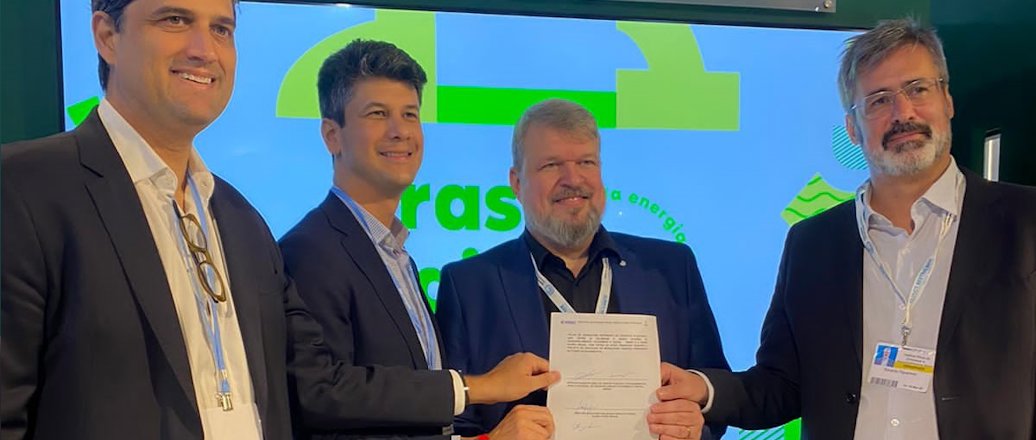The Pará municipalities of Acará, Moju and Tomé-Açu are protagonists of a pioneering initiative in education in the Amazon. The Institute for Research in Technology and Innovation (IPTI), in partnership with the Lorinvest group, Movimento Bem Maior and Hydro, promotes the Synapse Project - Alfabetização na Idade Certa (Literacy at the Right Age), which represents an investment of more than BRL 2 million, financed by the National Bank for Economic and Social Development (BNDES) through a Matchfunding launched in 2021.
The Synapse network is a social technology aimed at improving the teaching and learning of Portuguese and Mathematics in the literacy cycle, aligned with the National Common Curricular Base (BNCC), built to be effective in vulnerable and extremely poor regions. Currently, the methodology is applied in four Brazilian states and 27 municipalities. With Hydro's partnership, this will be the beginning of the project's operations in the Amazon, which will serve communities that are close to the company's pipeline, which takes bauxite from Paragominas to Barcarena.
“This partnership reinforces our commitment to the development of the state of Pará, where we have most of our operations and the largest number of employees. Supporting education in the places where we operate is in line with our company's strategy and is part of Hydro's values and ambitions", explains Anderson Baranov, Senior Vice President of External Relations for Hydro in South America.
In addition to the low learning rates in the early years of elementary school and the high rate of school dropout in the state, the pandemic brought challenges to the sector. Between 2019 and 2021, there was a 66.3% increase in the number of 6- and 7-year-olds who could not read and write. Through the project, teachers from the 1st, 2nd and 3rd year of Elementary School will receive training and a new school management system with free access and validated by the Ministry of Education (MEC) will be implemented. With the project, the expectation is to train around 600 teachers and benefit 12,000 students from Pará.
“Our strategy is to invest in traditional training and professional qualification education initiatives. With an investment of approximately BRL 1.1 million, through the Synapse project, we hope to support the qualification and training of public schools to overcome the challenges created by covid-19”, adds Eduardo Figueiredo, Director of Sustainability and Social Impact at Hydro.
The project is expected to start in 2023. The partnership was officially announced by the cofinanciers during the 27th United Nations Conference on Climate Change, COP-27, in Egypt, on 11/16, with the presence of Anderson Baranov and Eduardo Figueiredo, from Hydro.
"Education has become a strategic priority for the BNDES in 2022 and it is our objective to contribute to improving the quality of public education. Investing in the development of the faculty, preparing them for contemporary challenges and offering management tools to directors, recording and monitoring progress in school performance is essential in any scenario of progress. The challenge is great and the solution needs to be replicable and scalable. We want more and more partners, like Hydro, to be interested in this cause and unite their efforts in favor of education”, highlights Bruno Aranha, Director of Productive and Socio-Environmental Credit at BNDES.
Commitment to education
Focused on building a positive agenda for the sustainable development of the areas in which it operates, Hydro promotes even more strengthening actions related to education. One example is the Território do Saber program, which is directly linked to the 2030 Agenda for Sustainable Development of the UN, aiming at a society where it is possible to make a positive difference by improving the quality of education. The program was structured on three interdependent pillars, and seeks to promote changes in individuals and their interrelationships for a better school climate, strengthening youth and adult education, in addition to innovations in the use of teaching and learning methodologies.
By investing in the personal and socio-emotional training of educators, the company believes that managers will be better prepared to lead the process of change and innovation in teaching and learning methodologies in the region. The program started in 2019 and more than 500 teachers participated in the program's training activities. During this period, the educational performance of municipal schools has also been worked on through actions aimed at strengthening school management and changing the culture of these establishments.
: November 18, 2022







